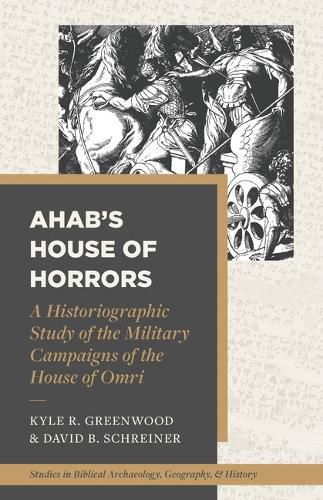Readings Newsletter
Become a Readings Member to make your shopping experience even easier.
Sign in or sign up for free!
You’re not far away from qualifying for FREE standard shipping within Australia
You’ve qualified for FREE standard shipping within Australia
The cart is loading…






Reconciling biblical and extrabiblical history
The extrabiblical testimony surrounding Israel's early history is difficult to assess and synthesize. But numerous sources emerging from the ninth century BC onward invite direct comparison with the biblical account. In Ahab's House of Horrors: A Historiographic Study of the Military Campaigns of the House of Omri, Kyle R. Greenwood and David B. Schreiner examine the historical records of Israel and its neighbors. While Scripture generally gives a bleak depiction of the Omride dynasty, extrabiblical evidence appears to tell another story. Inscriptions and archeological evidence portray a period of Israelite geopolitical influence and cultural sophistication.
Rather than simply rejecting one source over another, Greenwood and Schreiner press beyond polarization. They propose a nuanced synthesis by embracing the complex dynamics of ancient history writing and the historical difficulties that surround the Omride dynasty.
Ahab's House of Horrors is an important contribution to the ongoing discussion of biblical historiography and, specifically, to our understanding of 1-2 Kings and the Omride family.
$9.00 standard shipping within Australia
FREE standard shipping within Australia for orders over $100.00
Express & International shipping calculated at checkout
Reconciling biblical and extrabiblical history
The extrabiblical testimony surrounding Israel's early history is difficult to assess and synthesize. But numerous sources emerging from the ninth century BC onward invite direct comparison with the biblical account. In Ahab's House of Horrors: A Historiographic Study of the Military Campaigns of the House of Omri, Kyle R. Greenwood and David B. Schreiner examine the historical records of Israel and its neighbors. While Scripture generally gives a bleak depiction of the Omride dynasty, extrabiblical evidence appears to tell another story. Inscriptions and archeological evidence portray a period of Israelite geopolitical influence and cultural sophistication.
Rather than simply rejecting one source over another, Greenwood and Schreiner press beyond polarization. They propose a nuanced synthesis by embracing the complex dynamics of ancient history writing and the historical difficulties that surround the Omride dynasty.
Ahab's House of Horrors is an important contribution to the ongoing discussion of biblical historiography and, specifically, to our understanding of 1-2 Kings and the Omride family.